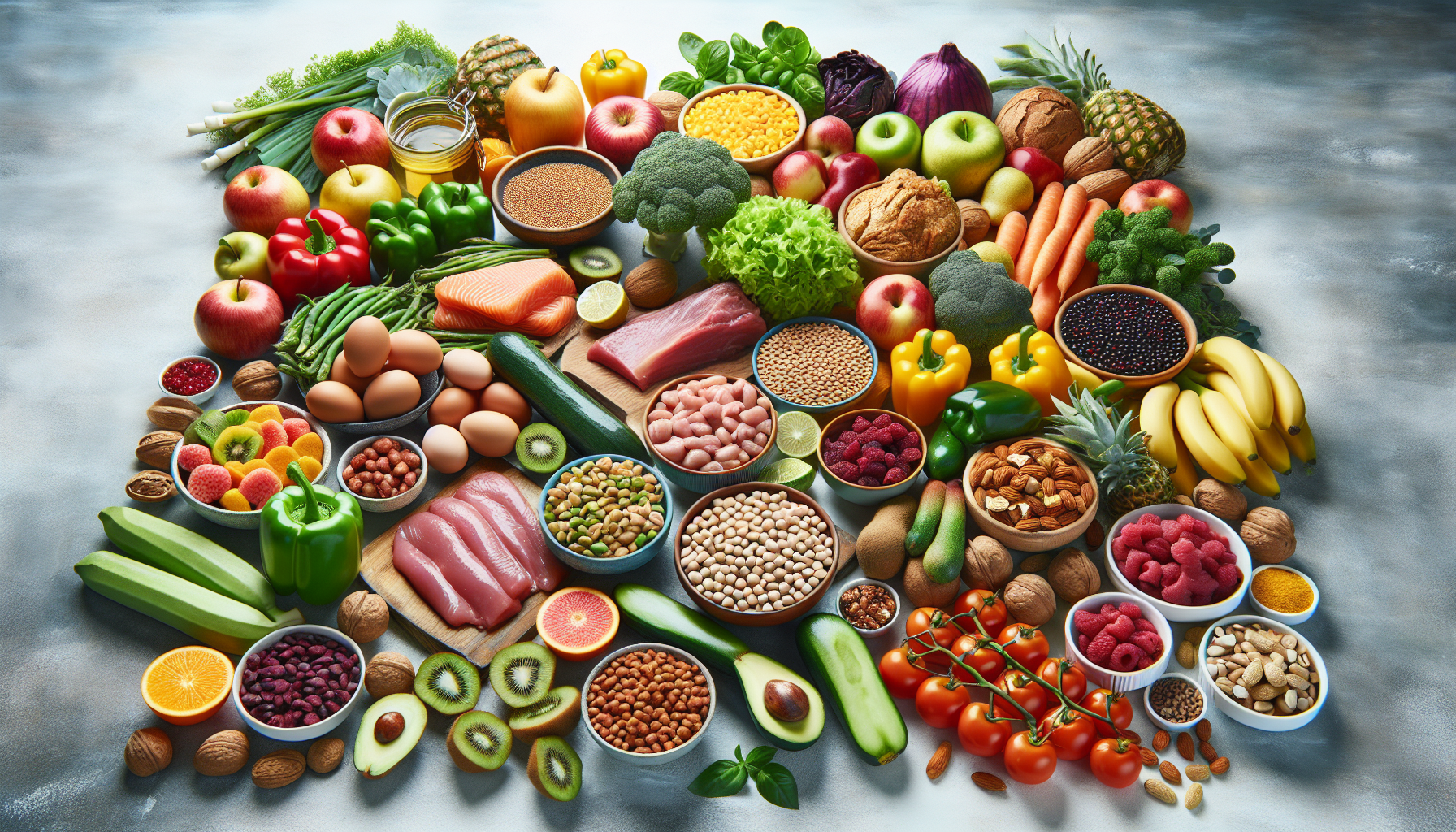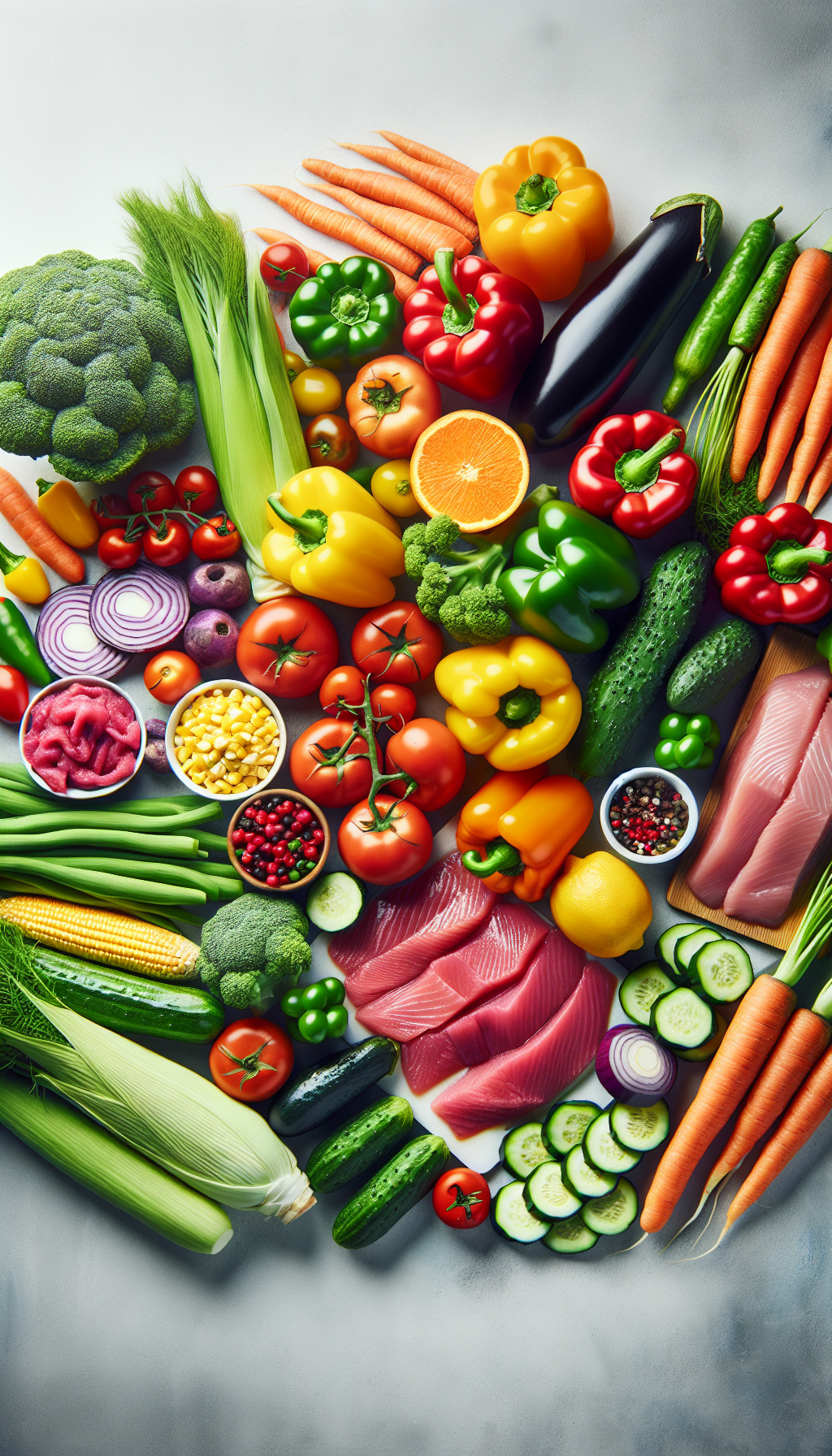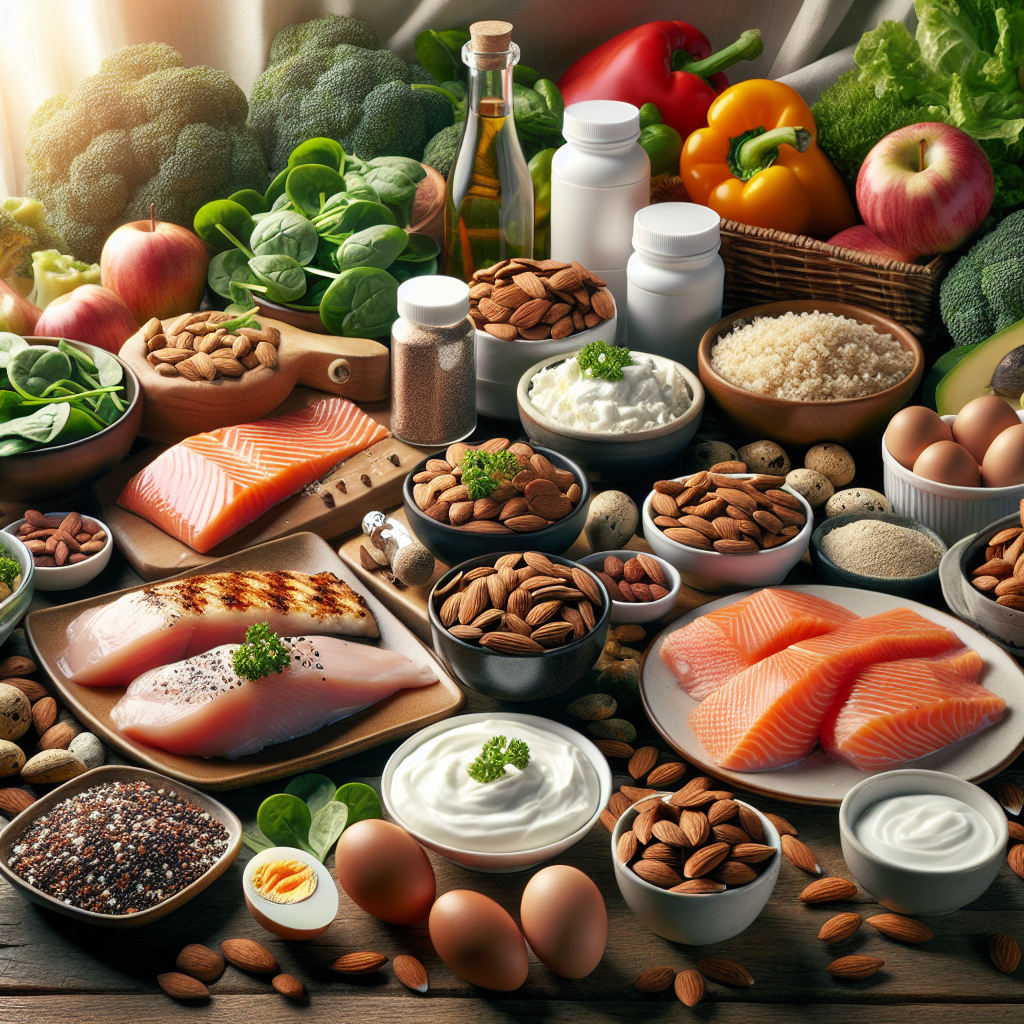Achieving a balance between muscle gain and fat loss is a common goal for many fitness enthusiasts and individuals looking to improve their health. This intricate dance of building muscle while shedding unwanted fat can be complex, but with the right nutritional strategies, it’s certainly attainable. This comprehensive guide will delve into the nutritional fundamentals, practical tips, and scientific insights to help you sculpt the body you desire.
Understanding the Balance Between Diet and Exercise
Before you can effectively manipulate your diet for muscle gain and fat loss, it’s crucial to understand that both diet and exercise play pivotal roles. A well-designed fitness routine is essential for stimulating muscle growth and increasing metabolism, which aids in fat loss. However, without proper nutrition, your efforts in the gym may not translate into the results you’re aiming for.
Macronutrients: The Building Blocks of Your Diet
Macronutrients are nutrients that provide calories or energy. The body requires these nutrients in larger amounts to maintain overall health, support metabolic processes, and fuel physical activities.
- Proteins: Essential for muscle repair and growth, proteins should be a staple in your diet. Aim for lean sources like chicken, fish, legumes, and low-fat dairy.
- Carbohydrates: Carbs are the body’s primary energy source. Choose complex carbohydrates like whole grains, fruits, and vegetables, which provide sustained energy and fiber.
- Fats: Healthy fats are crucial for hormone production, including those responsible for muscle growth and fat metabolism. Incorporate sources like avocados, nuts, seeds, and olive oil.
To support muscle gain, your body needs a surplus of calories, which can be achieved by increasing your intake of these macronutrients. However, for fat loss, a caloric deficit is required. This means consuming fewer calories than your body burns in a day.
Micronutrients and Hydration: Don’t Overlook the Small Stuff
While macronutrients may take center stage, micronutrients and hydration play supporting roles that are just as important.
- Vitamins and Minerals: These are vital for various bodily functions, including energy production and the synthesis of new muscle tissue. Ensure a colorful diet full of fruits and vegetables to cover your micronutrient needs.
- Water: Adequate hydration is essential for optimal metabolic function and nutrient transport. Aim to drink at least 8 glasses of water per day, more if you’re active.
Tailoring Your Diet for Muscle Gain
When the goal is to increase muscle mass, your diet should be rich in quality proteins to facilitate muscle repair and growth. Incorporate a variety of protein sources to ensure a complete amino acid profile, which is critical for muscle synthesis.
- Timing Your Meals: Eating protein-rich meals and snacks every 3-4 hours can help maintain a positive nitrogen balance, which is indicative of muscle growth.
- Post-Workout Nutrition: After a strenuous workout, your muscles are primed for nutrient uptake. A combination of protein and carbohydrates can enhance recovery and muscle growth.
For practical advice on structuring a muscle-building diet, exploring the benefits of swimming for total body fitness can provide insights into how swimmers tailor their diets for performance and muscle gain.
Creating a Deficit for Fat Loss
Fat loss, on the other hand, requires a different approach. While still maintaining adequate protein intake to preserve muscle mass, you’ll need to create a caloric deficit.
- Monitoring Caloric Intake: Use apps or food diaries to keep track of your daily caloric intake and ensure you’re not overeating.
- Choosing the Right Foods: Focus on foods that are nutrient-dense but lower in calories, such as leafy greens, lean proteins, and whole grains.
To learn more about managing caloric intake, consider reading about how to build a fitness routine you’ll actually stick to, which includes strategies for incorporating dietary changes that are sustainable and conducive to fat loss.
The Importance of Consistency and Patience
Transforming your body composition with nutrition is not an overnight process. Consistency with your diet and patience will be your greatest allies. It’s also important to adjust your nutritional strategies as your body changes and your goals evolve.
Advanced Nutritional Tactics
For those looking to take their nutritional strategy to the next level, consider the following:
- Carb Cycling: This involves alternating between high-carb and low-carb days to help maintain metabolism and muscle mass while losing fat.
- Intermittent Fasting: Some research suggests that intermittent fasting can be effective for fat loss while preserving muscle mass.
For individuals interested in the science behind these tactics, exploring the link between stress reduction and regular exercise can provide additional context on how hormonal balance impacts fat loss and muscle gain.
External Resources for Further Reading
For those seeking to delve deeper into the science of nutrition and its effects on the body, here are a few external resources that offer valuable information:
- Precision Nutrition’s Guide to Nutrition
- The International Society of Sports Nutrition Position Stands
- The Role of Leucine in Weight Loss Diets and Glucose Homeostasis
- The Effects of Intermittent Fasting on Human and Animal Health
These resources provide evidence-based information that can help you make informed decisions about your diet and understand the mechanisms behind muscle gain and fat loss.
Conclusion
Nutritional strategies for muscle gain and fat loss revolve around a delicate balance of consuming the right types and amounts of macronutrients, maintaining an appropriate caloric intake, and ensuring sufficient micronutrients and hydration. By understanding the roles of diet and exercise, strategically timing meals, and being patient and consistent, you can pave the way for a stronger, leaner physique. For a more personalized approach, consider consulting with a registered dietitian or a certified nutrition specialist who can tailor a plan to your unique needs and goals. Remember, the journey to muscle gain and fat loss is a marathon, not a sprint, and with the right nutritional strategies, you can cross the finish line with success.



